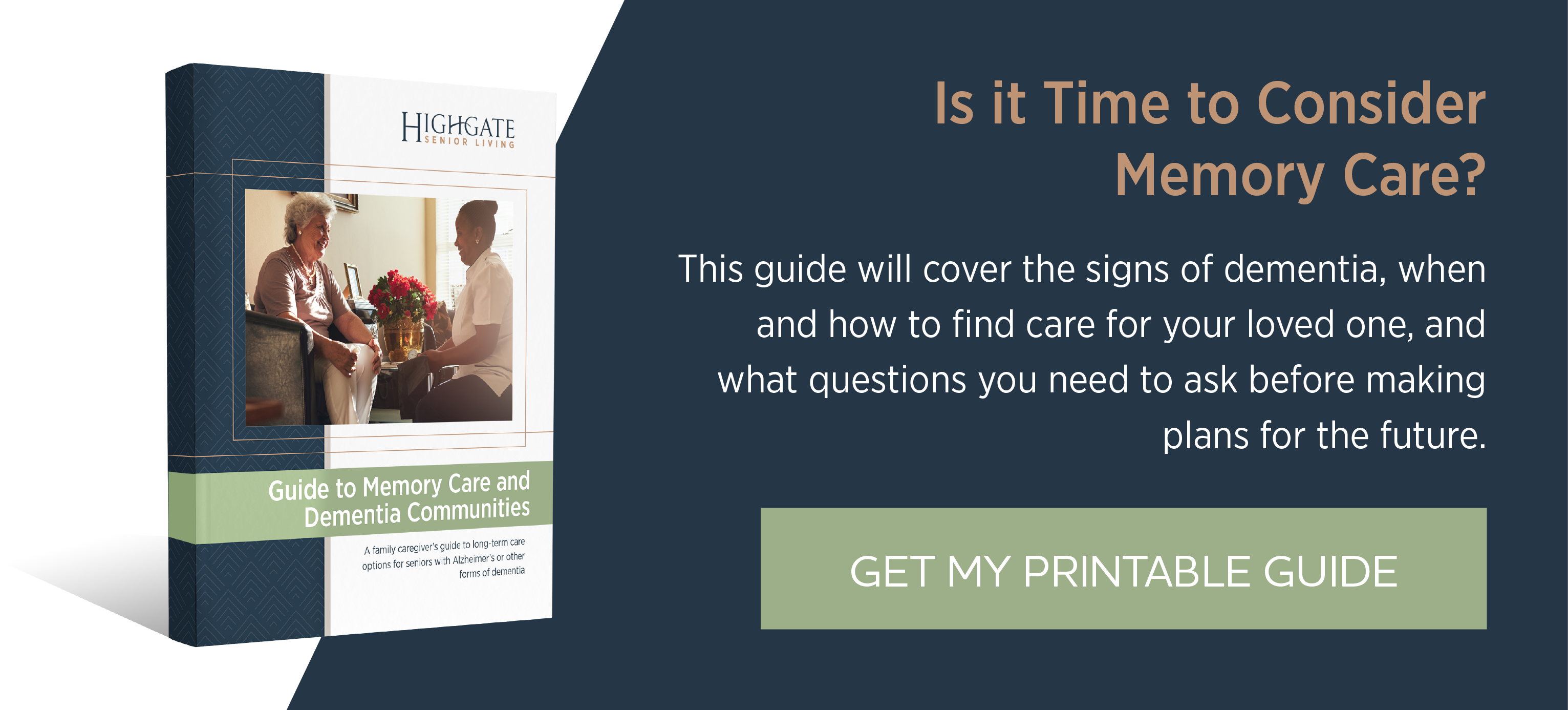 If you are considering assisted living for your loved one with Alzheimer's or other dementia, it’s important to find an assisted living Alzheimer’s care community that is closely aligned with your loved one’s needs and equipped to handle the special needs of people with Alzheimer’s.
If you are considering assisted living for your loved one with Alzheimer's or other dementia, it’s important to find an assisted living Alzheimer’s care community that is closely aligned with your loved one’s needs and equipped to handle the special needs of people with Alzheimer’s.
Since there are so many senior living options from independent senior living and assisted living communities to nursing homes and dementia care facilities, it can be hard to know where to start. It helps to understand what assisted living is and is not before narrowing down which assisted living Alzheimer’s care community is right for your family member.
What Is Assisted Living?
Assisted living, sometimes also referred to as assisted or supported care or adult living, is the step in between living in an independent senior living community and living in a nursing home. Assisted living communities typically offer housing, meals, and supportive services; however, they don’t provide round-the-clock, on-site medical care. Just like the name implies, they provide assistance with activities of daily living, such as bathing, grooming, managing medications, mobility, toileting, laundry, cleaning, and cooking.
If your loved one has early-stage Alzheimer’s and can function independently, assisted living might be a good option. They might live in a private or shared apartment, cottage, condominium, or single-family home and have access to community spaces and common areas as well as staff available to assist them.
Not all assisted living communities offer services designed for people with dementia since Alzheimer’s is a progressive disease. The needs of your loved one will eventually require the specialized care that an assisted living Alzheimer's care community can provide.
What Is Assisted Living Alzheimer’s Care?
Some assisted living communities specialize in caring for people with Alzheimer’s or have a separate portion of the assisted living community dedicated to the care of those with Alzheimer’s and other forms of dementia. You might hear them referred to as assisted living Alzheimer's care communities, Alzheimer's special care units, or memory care units.
Assisted living Alzheimer's care communities are ideal for people who are in the later stages of the disease and require a higher level of skilled care and supervision. Here are some things you’ll want to look for and ask about when considering and touring an assisted living Alzheimer's care community.
Compassionate, Trained Staff
What type of training does the staff have? How many hours of training does the staff receive? Is the staff trained to care for the specific needs and demands of dementia patients? What is the staffing ratio during the day? Does the staff appear to be knowledgeable and caring?
Individualized Care
What levels and types of care does the facility provide for all residents? What levels and types of care does the facility provide especially for Alzheimer's and dementia patients? Does each resident have an individual care plan?
Safety Precautions
What safety measures are in place for Alzheimer's and dementia patients? How is the community secured? Secure buildings? Secure grounds? How frequently are safety checks done? Are you able to care for residents who are physically aggressive or who exhibit disruptive behaviors?
Appropriate Activities
Do they offer activities that are intended to stimulate the memory of those with Alzheimer’s and other dementias and possibly slow the progression of the disease? Do they offer pet therapy, music therapy, and reminiscence therapy? Do they group residents by cognitive level?
Community Features
What are the living arrangements? Is there a special memory care dining program? Are there walking paths or circular walking paths for residents? Is the community easy to navigate?
Community Policies
Is there an assisted living to Alzheimer's care bridge program for early-stage patients? What types of care are they not able to provide? How do they transition residents from memory care to skilled nursing? How often are families updated about resident well-being?
Assisted living and assisted living Alzheimer's care communities take many forms, so it's important to ask specific questions about what is provided to ensure that the care provided is closely aligned with your loved one’s needs.






